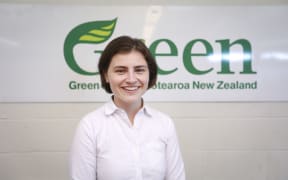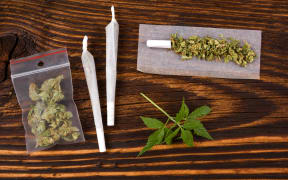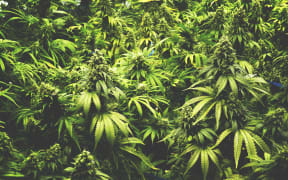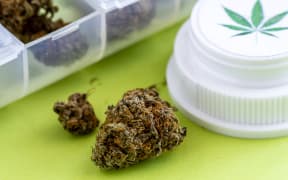A mother who gives her son medicinal cannabis to treat his violent seizures is terrified they will be without medicine, following what growers call a massive aerial cull of the crop.
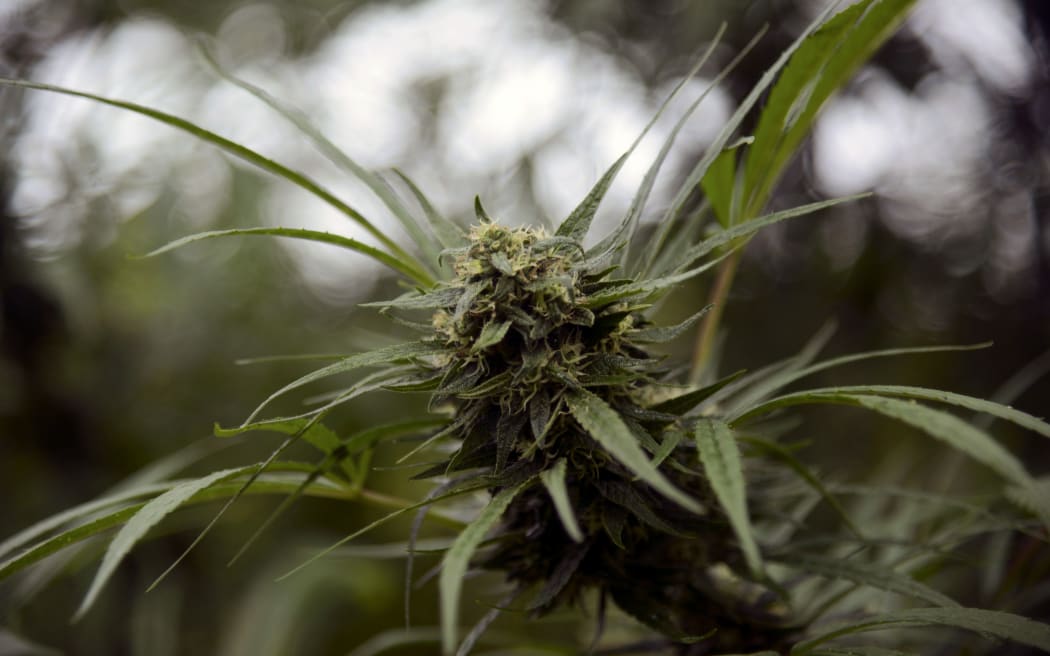
(file pic) Photo: AFP
Advocates and growers say upwards of 1000 plants were poisoned in a Northland drop last month, cutting the medicinal supply to hundreds of people.
For Auckland mother Kirstin McKendry and her eight year old son Charlie, every day is tough.
"My son at a very young age had a brain tumour removed. From the brain tumour, he has a lot of disabilities ... he's like a very small baby.
"We have a lot of seizures per day - anywhere from 10, to 100, depending on what kind of day it is," she said.
Two weeks ago, frustrated by a lack of options, Ms McKendry started - illegally - treating her son with cannabis oil.
To buy cannabis-based medicine legally would cost her $800 a month, which she said she cannot afford.
Charlie's seizures had already reduced, she said.
"Charlie doesn't smile a lot. I've noticed Charlie has a smile back, which is really lovely to see."
But Charlie's medicine could soon run out.
Medicinal cannabis advocates said recent aerial sprays in Northland devastated the crop, cutting supply to hundreds around the country.
Pearl Schomberg, the convener of medicinal cannabis support group Auckland Patients' Group, said 1200 plants were destroyed.
"We estimate that probably 300 to 400 of those plants were going directly to very unwell patients," she said.
"That's quite a lot to take out."
Pearl Schomberg said providers now had to prioritise patients - those who are most sick would get the little that is left.
"The rest will have to go scrambling around in a black market that's incredibly dangerous in a prohibition environment," he said.
"There's a lot of nefarious characters out there that take advantage of naive folk that have no idea what they're looking for or where they're going."
Police refused to comment on the drop.
"Police will not be commenting on the matter, which is currently before the court."
They also refused to answer general questions on the use of aerial drops.
"We are not in a position to discuss operational matters such as this in detail."
Medicinal grower Maki Herbert said the annual drops were an ongoing threat to those who relied on cannabis-based medication.
"While we've still got a black market, there's still going to be the police doing what they have to do.
"Unfortunately, people like myself - we call ourselves 'green fairies' - get caught up in that grey area.
She wanted the law changed immediately to protect those who grew and sold medicinal cannabis, so patients had a consistent supply they could afford.
Kirstin McKendry was worried about that dwindling supply.
"If that supply is gone, then my son doesn't have medicine," she said.
"If that's not available to me, to give to Charlie, what am I meant to do?"
A law change late last year relaxed medicinal cannabis laws slightly, giving amnesty to palliative patients.
A binding referendum on cannabis legalisation will be held at next year's general election.
Political hesitation 'frustrating' - activist Rose Renton
Medicinal cannabis activist Rose Renton told Morning Report she had a lot of sympathy for Kirstin and Charlie's situation.
"I really feel for Kirstin, I was in a similar situation obviously 18 months ago," she said.
"There is more than one crop, obviously, in the black market that's grown and I think if it's organically grown - it's outdoor or naturally grown - then you can diversify.
"It's something that I've had to learn when my crops have been taken or destroyed because of the law, that I've had to work with other growers."
Ms Renton was discharged without conviction on a charge of cannabis cultivation yesterday.
"Because of what I was doing with the cannabis and who's using the cannabis for medical purpose - some are in palliation, some are like charlie - then the judge said the world trends, medical evidence show that I wasn't doing it to blatantly break the law and make lots of money, I was doing it to help people that were suffering."
She said the cannabis she was growing had very low levels of THC.
"Right from the beginning that was my statement, is that CBD was the cannabinoid I was most focused on. With Cannabis, all cannabis, there is a trace of THC, some up to 18 percent for the really strong stuff and mine was quite minimal."
Ms Renton's son Alex was the first New Zealander granted permission to use cannabidiol a month before his death in 2015. In 2016 she presented a petition with over 15,000 signatures to parliament, urging the government to make medicinal cannabis more readily available.
"It's frustrating that we haven't got the politicians moving the law and doing their most," she said.
"The police are obviously doing what they do as part of their job."
In the meantime, she's working on applying for a cannabis licence.
"Ultimately with the amount of patient inquiry and people I work with now I need a large growing facility and partners that are able to do that here in Nelson, again focusing on the particular strands that are most suitable, with a rich CBD and a low THC."
"In palliation you need a much higher THC so I'm still gonna have to be working in a black market because I require a high-THC strand for pain in that palliation world.
"Until we legalise the plant and the THC is understood as the pain point I'm still going to be outside the law. I personally won't be growing it because it's totally unsafe for me, otherwise I'll be back in hot water."
"It's not going to be until after the referendum that there's going to be some sort of weight come off my shoulders.

